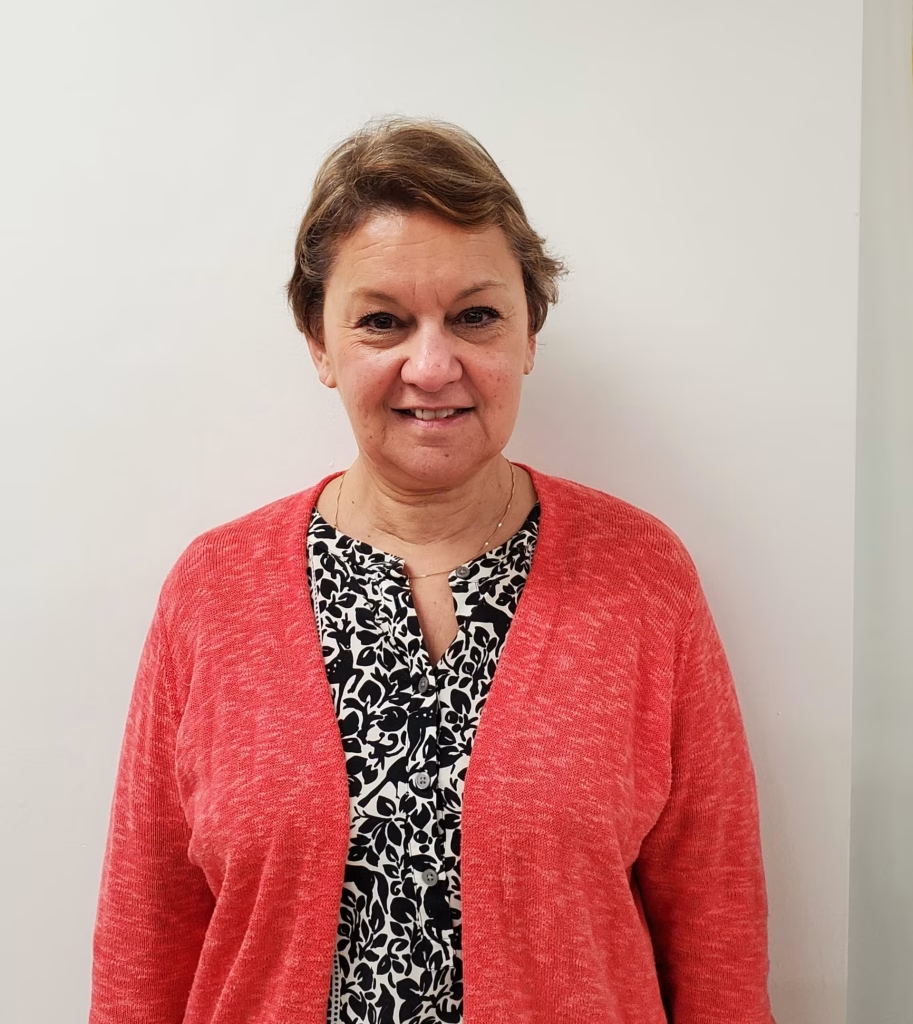Rather than being in a remote office at the end of the hallway, Maria Reolin, the Executive Director of Flemingdon Park Ministry (FPM), is in the middle of the action at their Gateway Boulevard location. She finds a lot of satisfaction in being a part of FPM, seeing the people who come every day. She’s dedicated to her work in the social sector. “That was my intention from the beginning. To be able to help as many people as I could.”
Maria Reolin grew up in a family of avid readers. Though her parents weren’t teachers, there was a strong mandate for education in her family. Consequently, Maria grew up believing that education was the base for everything because “when you know better, you can do better”.

More than 30 years ago, based on this belief, Maria began teaching English as a Second Language (ESL) to newcomers, immigrants and those with learning disabilities. She wanted to provide people with the means to do better, and language was one of the most fundamental tools that could help or hinder someone’s growth. A classroom, however, wasn’t big enough. Maria aspired to be in a place where she would be able to help more people in more ways.
Thus began her transition into the social services sector. Over the last 15+ years, Maria has held the position of executive director for various organisations. Her work has revolved around learning and education. While the forum has changed, the communities she serves remain the same.
When she came across the executive director position at Flemingdon Park Ministry (FPM), she felt it was an excellent opportunity to use her experience and knowledge as a catalyst for impact. Most importantly, she realized:
At FPM, Maria could act in a way that aligned with these realities. Providing more holistic support came with its own set of challenges. Without any funding from the government, FPM finds itself dependent on donations. She feels that they are constantly chasing the dollar and trying to create sustainability for the organisation. This can look like writing grant applications, looking to donors for support, or marketing their services to people.
Patience, being a good listener, and compassion have helped Maria the most in her work. To be able to put yourselves in somebody else’s shoes helps create the deepest impact. “My life is very different from the lives of my clients. I have always been privileged in that sense,” she explains. “But you must be able to understand what other people are going through, even if you haven’t lived that experience. So, you live that experience through their experience.”
It is overwhelming coming from a country where the culture and language are different and then adjusting without the support of extended family or friends. But little by little newcomers find their network at FPM and start creating a place that feels like home in Toronto.
“They smile at me and often tell me they’re either expecting a child or their children are about to go to school, or their husband found a job or they’re moving to a bigger apartment,” she says. Whatever the achievement may be, she feels grateful she has been able to support them.
Maria is a big believer in women’s education, empowerment and independence. The majority of FPM’s clientele are women. Many of them come from cultures where they were oppressed and undervalued. For Maria, FPM is a place where they feel safe and have a voice. “I always tell my staff here: we need to repeat the same message over and over again, I am free. I am powerful, until they embody it.”
In the spring of 2025, FPM will be moving to a new place within the same building. With a bigger space, Maria hopes they can receive their clients with the dignity they deserve. Currently, not many people know about them. “We are completely unseen and unheard of, being a small organisation in the city of Toronto.” she says. “But come and see what we do. Help us, not for the sake of helping us, but to understand what we do and who the recipients of our efforts are.”
We would like to acknowledge that the land on which our office is located is the traditional territory of the Wendat, the Anishinaabeg, Haudenosaunee, and the Mississaugas of the Credit First Nation. Today, this meeting place is still the home to many Indigenous people from across Turtle Island and we are grateful to have the opportunity to work on this land.
M&M International Inc. recognizes the inequities connected to colonization and commits to working towards creating a just, inclusive, and vibrant community for all. We invite you to reflect upon this land acknowledgment, what it means to your personal story, and what the Truth and Reconciliation Commission’s Calls to Action mean to you.
In an effort to actively support, we are giving 1% of our annual revenue to charity.
In the spirit of equality and inclusion, if we can improve on this statement,please contact us.
Thank you.
We would like to acknowledge that the land on which our office is located is the traditional territory of the Wendat, the Anishinaabeg, Haudenosaunee, and the Mississaugas of the Credit First Nation. Today, this meeting place is still the home to many Indigenous people from across Turtle Island and we are grateful to have the opportunity to work on this land.
M&M International Inc. recognizes the inequities connected to colonization and commits to working towards creating a just, inclusive, and vibrant community for all. We invite you to reflect upon this land acknowledgment, what it means to your personal story, and what the Truth and Reconciliation Commission’s Calls to Action mean to you.
In an effort to actively support, we are giving 1% of our annual revenue to charity.
In the spirit of equality and inclusion, if we can improve on this statement, please contact us.
Thank you.